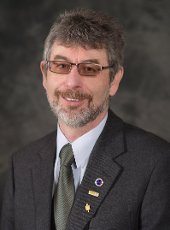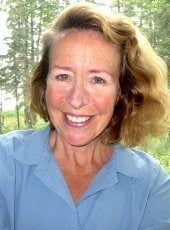| April 10, 2019 | Theme: Surfaces, Material, and Metals|

Lecturer
Distinguished Professor Jaroslaw Drelich
Topic
Surfaces and Interfaces: Building Blocks of Nature and my Research World
Inter-disciplinary Collaborators
- Jeremy Goldman, Biomedical Engineering
- Feng Zhao, Biomedical Engineering
- Tim Scarlett, Social Sciences
- Timothy Eisele, Chemical Engineering
Research Statement
I have been playing with surfaces and interfaces since childhood. The amusement of striders walking on the surface of ponds, of the dew decorating mystifying spider webs, and of the strength and texture of the skin on fruits activated my curiosity, and later my research interests. Over the years, I explored the protective nature and functionality of surfaces and, most recently, manipulation of interfaces in crystalline materials. In this talk, I will present examples on fabrication of water repelling coatings, discuss transformations taking place in the science of contact angles, and review our innovative biodegradable metals for medical applications.
| March 20, 2019 | Theme: Organizational Behavior |

Lecturer
Topic
Felt Experience: A Key Bridge Between Research Knowledge and Social Change
Research Statement
Academics are criticized for living in ivory towers. A more “virtuous” cycle begins
with personal experiences that motivate research and ends with applying knowledge
to improve the world. Our understanding of diversity has increased as a result of
members of underrepresented groups generating new knowledge, such as on implicit bias
and bystander effects, but this has minimal impact if it remains in the collective
intellect.
Bringing majority group members closer to the felt experience of minorities is a type
of “active learning” that moves beyond data demonstrating the problem to a deeper
understanding and motivation to resolve it.
| February 27, 2019 | Theme: Mathematics |

Lecturer
Distinguished Professor Vladimir Tonchev
Topic
Coding Theory, Combinatorial Designs, and Finite Geometry
TechTalks presented by the Department of Mathematical Sciences
- Missy Keranen, Mathematical Sciences
- William Keith, Mathematical Sciences
- CK Shene, Computer Sciences
This special iteration of the Research Forum series will be a combination for a Distinguished
Lecture (20 minutes) and several TechTalks presentations (2 Minute. 2 Slides)
Research Statement
Error-correcting codes are used to protect data from random errors in satellite and wireless communication systems, audio and video recording, and data storage. A large class of codes with many practical applications are based on finite geometry. The most notable example of such codes are the famous Reed-Muller codes that are being used in deep space and mobile communications. The subject of this talk is a class of codes based on combinatorial designs. These combinatorial codes posses remarkable error-correction properties, admit efficient decoding, and may provide a viable alternative to some of the Reed-Muller codes.
| December 6, 2018 | Theme: Water Resources |

Lecturer
Distinguished Professor Nancy Langton
Topic
Sustaining Lake Superior
Great Lakes Research Center Affiliates
- Sarah Green, Chemistry
- Casey Huckins, Biological Sciences
- Sarah Fayen Scarlett, Social Sciences
- Don Lafreniere, Social Sciences
This special iteration of the Research Forum series will be a combination for a Distinguished Lecture (20 minutes) and several TechTalks presentations (2 Minute. 2 Slides)
Research Statement
How can communities help sustain the health of Lake Superior in the face of climate change? The challenges facing Lake Superior are many—yet local, regional, and international communities overcame enormous threats to the lake's ecosystems in the past century. My research asks: What can we learn from the recoveries around Lake Superior over the past century, as we face new interconnected challenges from climate change, synthetic chemicals, and forest change?
Fall 2018 Distinguished Lecturer

The University Professor title recognizes faculty members who have made outstanding scholarly contributions to the University and their discipline over a substantial period of time.
Dr. Alex Mayer selected as the first University Professor in 2018. He presented a lecture, Coping with uncertainty: Water tales from the Wild West and elsewhere, at the Fall 2018 Research Forum as a Distinguished Lecturer on October 25, 2018 in a format encouraging networking and discussions.